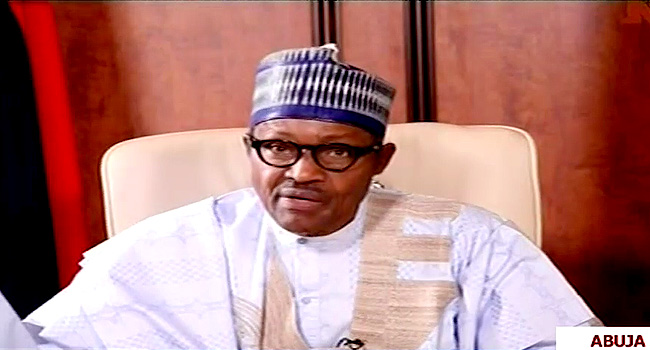By Ishaya Ibrahim
The ball is now in the court of the National Assembly. Can the lawmakers muster the numbers to override President Muhammadu Buhari’s refusal to sign the amended electoral act?
In declining assent to the bill, Buhari said the time to the eloction is too short and will create some uncertauinty about the applicable legislation to govern the process.
Buhari wrote the Senate President and the Speaker of the House of Representatives, Bukola Saraki and Yakubu Dogara respectively on his refusal to assent to the bill.
He said any “real or apparent change to the rules this close to the election may provide an opportunity for disruption and confusion in respect of which law governs the electoral process.”
Buhari said he refused to assent in the best interest of the country and that the national assembly should state specifically in the new bill that the Act will be applicable only after the 2019 election.
Buhari faulted the use of the term “Ward Collection Officer”, saying it should be revised to reflect a more descriptive definition than the capitalised and undefined term “Registration Area Collection Officer.”
He picked hole in some of the provisions sent to him.
.Section 11 of the bill, amending Section 36 should indicate the subsection in which the proviso is to be introduced.
.Section 24 of the bill which amends Section 85 (1)should be redrafted in full as the intyroduction of the “electing” to the sentence may be interpreted to mean that political parties may give 21 day’s notice of the intention to merge, as opposed to the 90 days provided in the Section 84 (2) of the Electoral Act which provides the provision for merger of political parties.
.Section 5 of the bill, ammending Section 18 of the Principal Act should indicate the Subsection to which theb substitution of theb figure”30″ for tyhe figure “60” is to be effected.
However, Buhari’s other reasons may not be far from the protocol of the Economic Community of West African States (ECOWAS) which forbids any amendment to an electoral act six months before election. The 2019 poll is less than 70 days away.
The aspect of the amendment that has aroused the interest of Nigerians is the introduction of electronic method of accreditation – card reader. In 2015, it was used, albeit as a mere guideline of the Independent National Electoral Commission.
“The card reader in Kano recorded less than 1 million people accredited for the 2015 poll. But when the result came in, the APC candidate got more than 1.9 million votes,” Tola Adeniyi, a columnist had complained recently at a summit of the League of Nigerian Columnist held in Lagos.
The amendment which Buhari returned back to NASS, was supposed to discourage that kind of practice where one voter can thumbprint many ballot papers.
“The Supreme Court had ruled that the use of card reader in the 2015 election was a mere guideline. It has no legal backing. Now that the President has refused to sign it into law, it means that people can discard it and use the manual register. We are back to Egypt,” Lagos Lawyer, Barrister Ubani said.
Another lawyer, Barrister Abdulaziz Ibrahim had said the lawmakers played into the hand of the President by first presenting a draft that contained certain ambiguities. He said the president can safely decline assent citing the ECOWAS protocol since Nigeria is a signatory.
The senate now has to mobilize 72 of its 109 members to vote in favour of overriding the president. In the House of Representatives, 240 members of the 360 representatives are required to make the decision.
The drama will unfold in the coming weeks.











